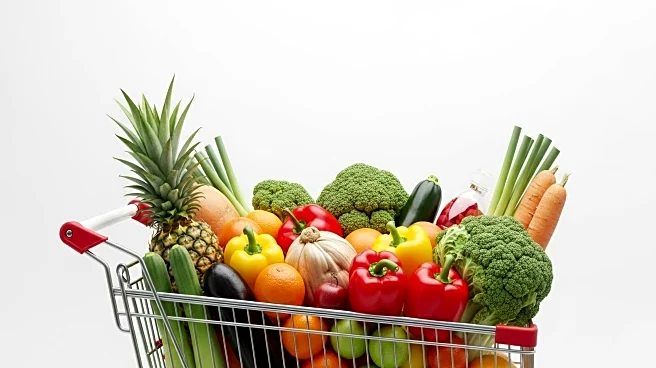What is the story about?
What's Happening?
Americans are facing significant increases in grocery prices, with food costs rising by 24% from 2020 to 2024, according to the USDA's Economic Research Service. Coffee prices alone surged by 45% year over year in August. In response, Consumer Reports has provided several strategies to help consumers manage their grocery budgets more effectively. These include planning meals to avoid overbuying and food waste, opting for generic or store-brand products, and considering meatless meals to save money. Additionally, joining store loyalty programs can offer further discounts, and proper storage of groceries can extend the life of produce.
Why It's Important?
The rising cost of groceries is a significant concern for many Americans, with 77% reporting that they have felt the most substantial increase in their grocery bills. This situation is exacerbated by factors such as inflation, tariffs, and extreme weather conditions. The strategies suggested by Consumer Reports can help alleviate some of the financial burdens on households, particularly those with limited budgets. By adopting these cost-saving measures, consumers can potentially save a significant amount of money annually, which is crucial in the current economic climate.
What's Next?
Consumers may increasingly turn to alternative shopping strategies and resources such as food banks or the Supplemental Nutrition Assistance Program (SNAP) to manage their grocery expenses. Retailers might also respond by offering more competitive pricing on store-brand products and expanding loyalty programs to retain customers. As economic conditions evolve, further adjustments in consumer behavior and retail strategies are likely.
Beyond the Headlines
The ongoing rise in grocery prices highlights broader economic challenges, including supply chain disruptions and the impact of climate change on agriculture. These factors may prompt policymakers to consider interventions to stabilize food prices and support vulnerable populations. Additionally, the trend towards more sustainable and cost-effective food choices, such as plant-based diets, could have long-term implications for the food industry.

















